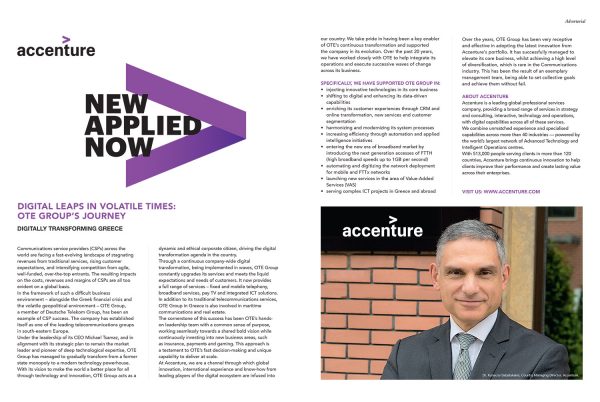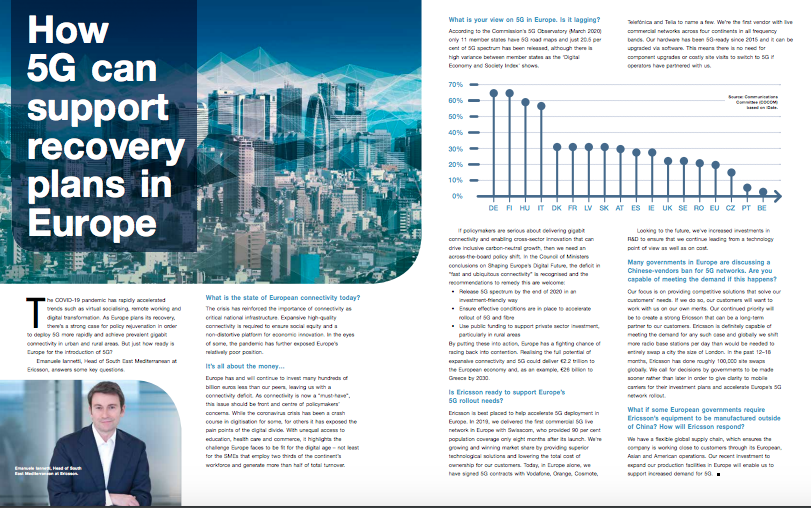For two years between 1984 and 1986, Michael Tsamaz was a Second Lieutenant in the Greek army, but the biggest battle of his professional life was not in the military. Instead, it was when he took on the role of Chair and CEO at Greek telecommunications giant OTE Group while the country was in the throes of its debt crisis.
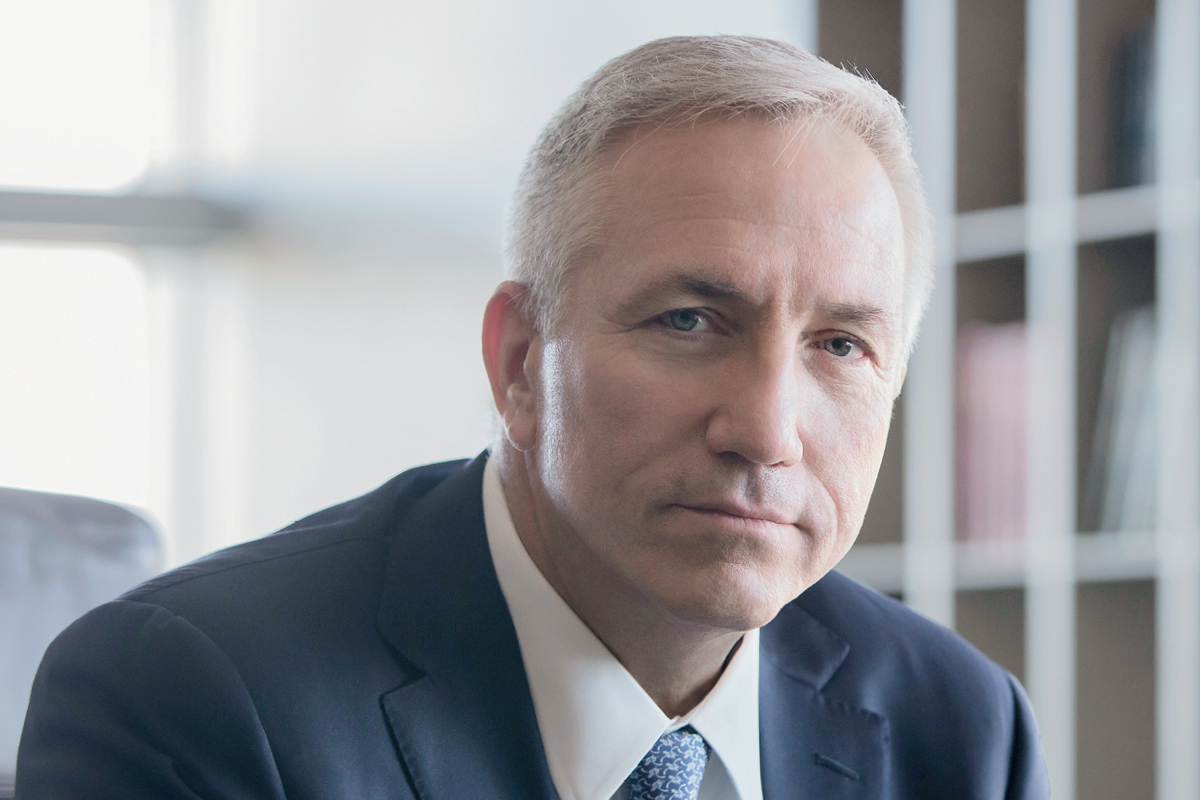
“I came into the position in November 2010, just a few months after the Greek government announced that we were going to get a bailout from the International Monetary Fund (IMF),” Michael recalls.
The economic situation meant that he had inadvertently jumped into his new role at the very deepest end. “There were two major issues I had to contend with. One was the debt crisis. The other was the fact that OTE, as a former state-owned monopoly, was underperforming in terms of customer service, competitiveness and financial results.”
According to Michael, because the company was the incumbent, it was operating under very strict regulation that only compounded the effects of the crumbling economy. OTE had gone into a debt that seemed impossible to get out of, especially after foreign banks stopped lending to Greece-based companies after the IMF’s bailout announcement.
“The debt in 2010 was 2.7 times the year’s earnings before interest, taxes, depreciation and amortisation (EBITDA),” he laments. The way he saw it, there were only two ways they could get out of the situation.
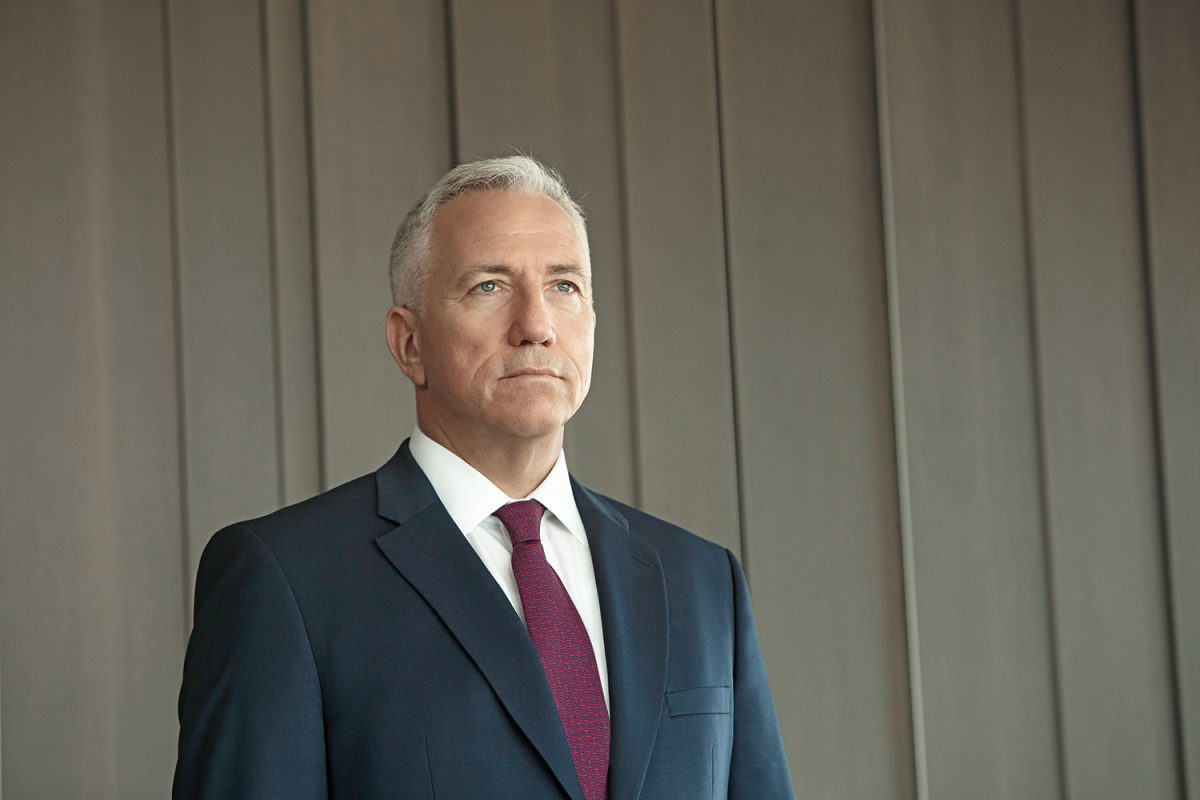
“We could have either sat back, prayed for the financial crisis to end, for a miracle to happen and for the disaster to go away, or we could have examined what we could do to manage the circumstances and transform the company.” He chose the latter, of course.
“I persuaded my team that, instead of feeling inundated by this, we should see it as an opportunity to transform the company into a growing operation that was highly competitive, efficient and customer-oriented. It felt like an impossible mission at that time but, seeing the results today, I can tell you that we managed to make the impossible, possible.”
Rising to the challenge
The company’s metamorphosis began with a lofty vision to shift from a former state-owned monopoly to a modern private company. Michael drew up a strategy for this transition based on six pillars: technological superiority; best customer experience; revenue transformation; lead in core business; digitalisation, simplification and cost optimisation; growth mindset and culture.
His first line of attack was cost-focused and centred around the pillars of revenue transformation and cost optimisation, both of which he considered fundamental to the turnaround of the company.
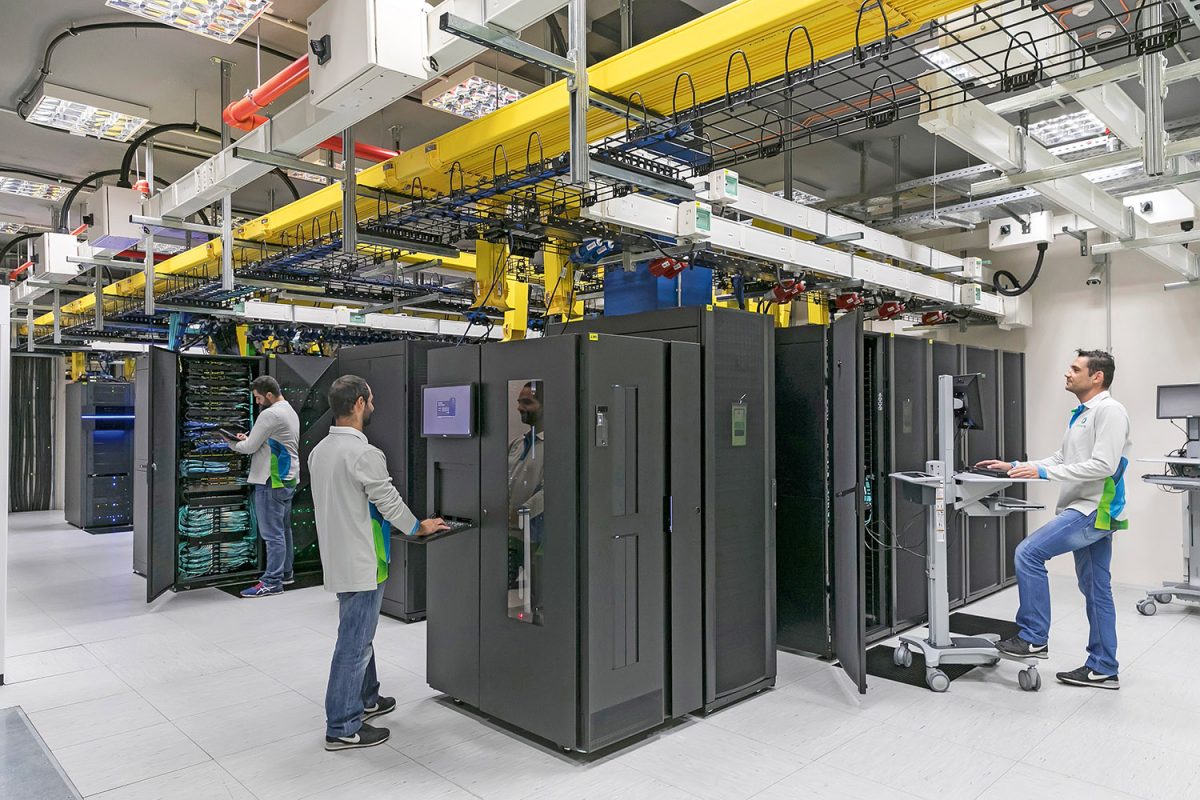
“My number one priority was to slash our costs. Only when we’d succeeded in fixing the basics could we start looking at growth,” he says. As the incumbent telecommunications company of the country, OTE did not have full control over its prices. Instead, it was controlled by a regulatory committee, resulting in prices that were not competitive in the marketplace.
“Some of our fixed line product offerings were 100% more expensive than those of our competitors,” Michael recalls. “Even our lowest priced product proposition was 45% more expensive than that of the competitors.”
We decided to sell the assets that we could not invest in anymore and use the proceeds from the sales to invest in areas that would give us the best returns on profit.
Because of this, when he assumed leadership responsibility of the company it was losing big parts of its customer base. “We had 4.5 million connected subscribers at that time and were losing 500,000 in a year. We made losses every month.”
To claw back into the black, the company had to become extremely pragmatic about handling its debt. That’s when Michael made the decision to shed some of the less profitable assets.
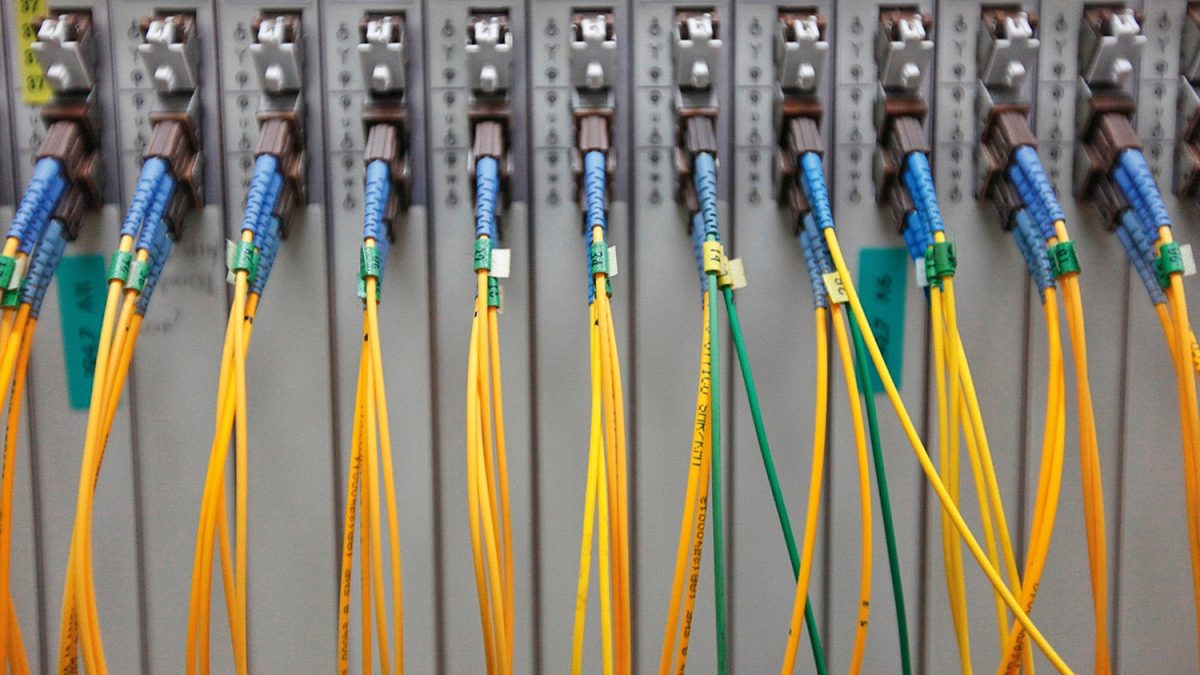
“We had assets in Serbia, Bulgaria and North Macedonia that were doing quite well. However, I could see that in order to continue performing well in these countries, we would have to invest anywhere from €200–300 million a year. But this was impossible at the time because of our debt.”
OTE Group decided to return its 20% stake in Telekom Srbija to the Serbian government, which owned the other 80% of the telecommunications company. It also sold Hellas SAT, its satellite division, to Saudi-based company Arabsat.
“We decided to sell the assets that we could not invest in anymore and use the proceeds from the sales to slice out debt and invest in areas that would give us the best returns on profit,” Michael explains.
Next task on the list was for Michael to turn his attention to OTE’s workforce. During Greece’s debt crisis, the country’s unemployment rate surged exponentially – for those aged 25 and under, the figure was 61.4%.
Against this backdrop, OTE managed to reduce costs in a socially responsible manner, signing a collective labour agreement with 10% lower wages in exchange for fewer working hours, and renewed personnel through voluntary exit schemes costing a total of €1 billion for the decade.
It also addressed the youth unemployment problem by hiring 2,500 young people better equipped to handle the new technologies the company was planning to invest in. Not only did Michael look to attain a leaner workforce in terms of numbers, he also targeted a leaner operation.
“Many of our processes dated back 50 years and, while they were fine up to perhaps 30 or 40 years ago, they were only creating bureaucracy and red tape in our modern world because they didn’t take into account the efficiency that technology can contribute.”
Reaping the rewards
Now, 10 years after Michael took the helm at the company and led these tough reforms, it’s clear that OTE Group is a transformation paradigm. It is currently the biggest technology company in Greece, and in the top three in capitalisation on the Athens Stock Exchange.
OTE’s share price rose by about 400% in the decade, while its debt was reduced by 80%. It takes pride in being Greece’s largest investor of new technologies and infrastructure, having contributed almost €5 billion over the past decade.
Its products and services show the results of these investments. Cosmote Fiber, the company’s fibre-optic network, is responsible for providing more than 50% of the Greek population with internet speeds of 100 megabits per second or more.
It is also the top mobile network provider in the country, with its 4G network reaching 99% of the Greek population. For a few years now, the Group is also profitable; its turnover last year was €3,907 million, and its adjusted EBITDA reached €1,364 million.
“We are the market leader in every segment we are in,” Michael says with pride. “Even in pay television, even though we entered late into the business.”
Information and communications technology (ICT) and television were the two new revenue streams the company took on when it was looking to offset the loss of revenue it was experiencing in its traditional core businesses during the crisis.
Notably, OTE Group today is among the few companies in Greece to have fully incorporated sustainable development into its strategy and operations. Its business model aims to create value for shareholders, customers, society, its employees and the environment.
In a nutshell
OTE Group commenced its commercial activities in Greece in 1949 as a state-owned company. Today, the Group ownership structure has changed to 46% owned by German telecommunications company Deutsche Telekom, 48.5% public, and only 5.5% owned by the state. The Group is also present in Romania, where it provides fixed-line, mobile and pay TV services. Currently, it boasts 7.4 million mobile subscribers within Greece. This is followed by fixed-line connections with around 2.6 million customers, fixed broadband with just over 2 million users and pay TV with more than 550,000 subscribers. Through intense activity in IT Integration, OTE Group is a partner of choice for enterprises seeking advanced solutions in the fields of health, tourism, information security, energy, data centres, cloud and IoT.
“The Group’s efficient operation and competitiveness lead to positive economic results and allows us to reinvest in the business to create more value for all our stakeholders in the short-, medium- and long-term,” Michael says.
Transformation reloaded
With the most pressing issues now resolved, OTE is ready for the next stage of its transformation. “We are a heavy organisation, even though we have reduced our employee numbers drastically,” Michael admits.
“And we still have a legacy mentality, so that will have to change if we want to be ready for the competition that is coming from all parts of the world.”
To ‘lighten’ the organisation, the management has plans to set up subsidiaries that would handle specific parts of the operations, thereby removing these responsibilities and the employees involved in them from the parent company.
The subsidiaries can then offer their services not only to the parent company, but also third parties, creating new revenue streams for OTE Group. “By skimming off our customer-facing activities, we make the parent company more efficient, agile and ready for competition,” Michael explains.
“It’s crucial that we successfully do this in the coming three years.” The idea of a radical restructure was not something that sat well with everyone. In fact, some employees, backed by the union, went on a strike earlier this year to protest against the management’s plans.
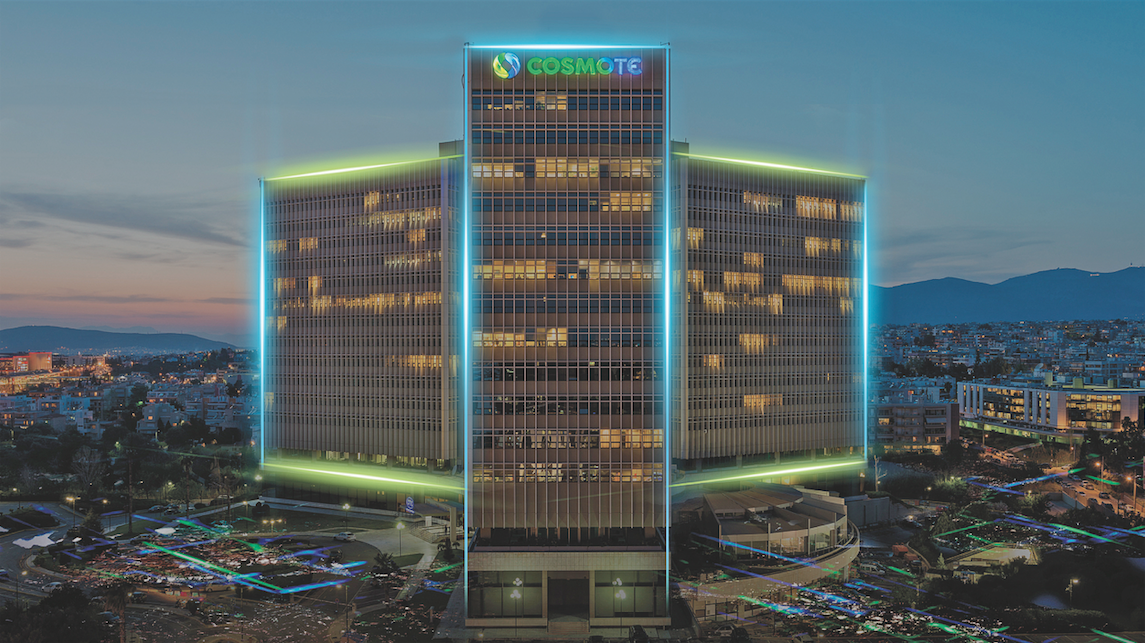
However, Michael is standing firm in his decision, saying, “Our mentality needs to catch up with the times. Things are changing, and this is the only way to survive. A company that does not transform, evolve, or look ahead to prepare for what’s coming is doomed.”
Looking forward
In fact, preparing for the future is always one of Michael’s main priorities. He prides himself on his foresight, and credits this quality, along with having support from the right management team, as crucial to his professional success.
“I’ve always had an urge to look ahead and to foresee what is coming in the next five or 10 years. I want to prepare the organisation I work for, for what’s to come.”
This has served him well during the COVID-19 crisis this year, when he acted quickly to initiate working from home arrangements within just 72 hours for 13,000 out of 16,000, or 80%, of OTE’s workforce.
“When it has to do with the lives and health of our people, there is no dilemma for me. I did not have to contemplate what to do. I will always choose the action that means zero risks for our people.”
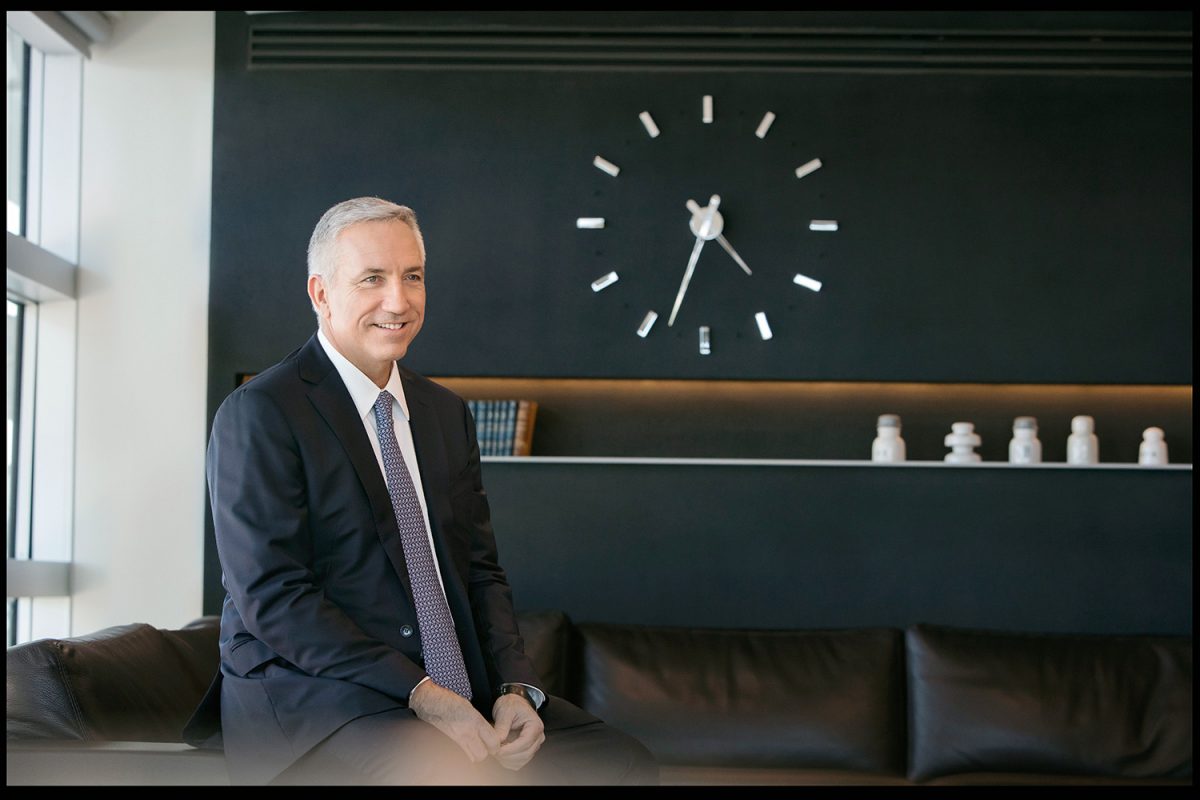
OTE’s response to the COVID-19 pandemic extended not just to its people. The OTE Group has also donated 110 hospital beds, 24 ventilators and other additional medical equipment, amounting to a total of €2 million, to hospitals around Greece. Michael admits that the virus had its impact on the company, but that it was marginal.
“We had a good run at the beginning of the year, which partially offset the effects of the coronavirus.” In addition, the company was able to keep the cost of its pandemic response – a total of €12 million, including the €2 million donated to the state – within its expenditure budget for the year.
“We could still deliver to our investors the revenue that we had predicted. In other words, we expect our EBITDA to be marginally affected,” he reveals. Looking into the near future, Michael expects technology to play a leading role not just in the company but also in the industry at large.
“I often tell my colleagues, employees and even my counterparts from other companies that a business that does not jump on the train of technology, digitalisation and innovation is a business without a future,” he says.
“The new digital era has eliminated the physical boundaries between markets, so your market is no longer limited to just your country or your local area; it could be any place in the world. But at the same time, you have to be prepared to compete with the rest of the world.
Against the greek crisis backdrop, we managed to reduce costs in a socially responsible manner
“Technology has allowed many things to be done faster and with much more efficiency, so it has created new business models. At the same time, it has changed the customer’s expectations and needs. So digital transformation is not a matter of choice; it’s a matter of survival.”
No man is an island
From turning losses into profits, dealing with strikes and leading the company through a pandemic, there’s no question that Michael has made great strides within OTE Group.
However, he is always quick to acknowledge the role that others have played in his success. “There are a few things that are important in managing a successful operation, and the first of them all is to identify and hire the right people for the right jobs,” he says.
“You cannot be successful without the right team around you.” Once the ideal team has been found, he believes that respect and honesty are the best ways to retain the people in it. The same applies to those he works with from outside the organisation.
“When working with suppliers, I understand that they, too, have to make a profit, and I have to respect that. If the supplier is happy, they are more likely to offer the services we expect, at the right time and the right price. It’s about integrity and achieving a win–win situation for both parties.”
To Michael, the happy medium is where customers, suppliers and employees are all satisfied. “We are all customers to some people, suppliers to others and employees too,” he points out.
“There is no recipe for how to treat or manage people, but my golden rule is that I treat others how I want to be treated. Applying this is the key to success.”
Proudly supported by:
